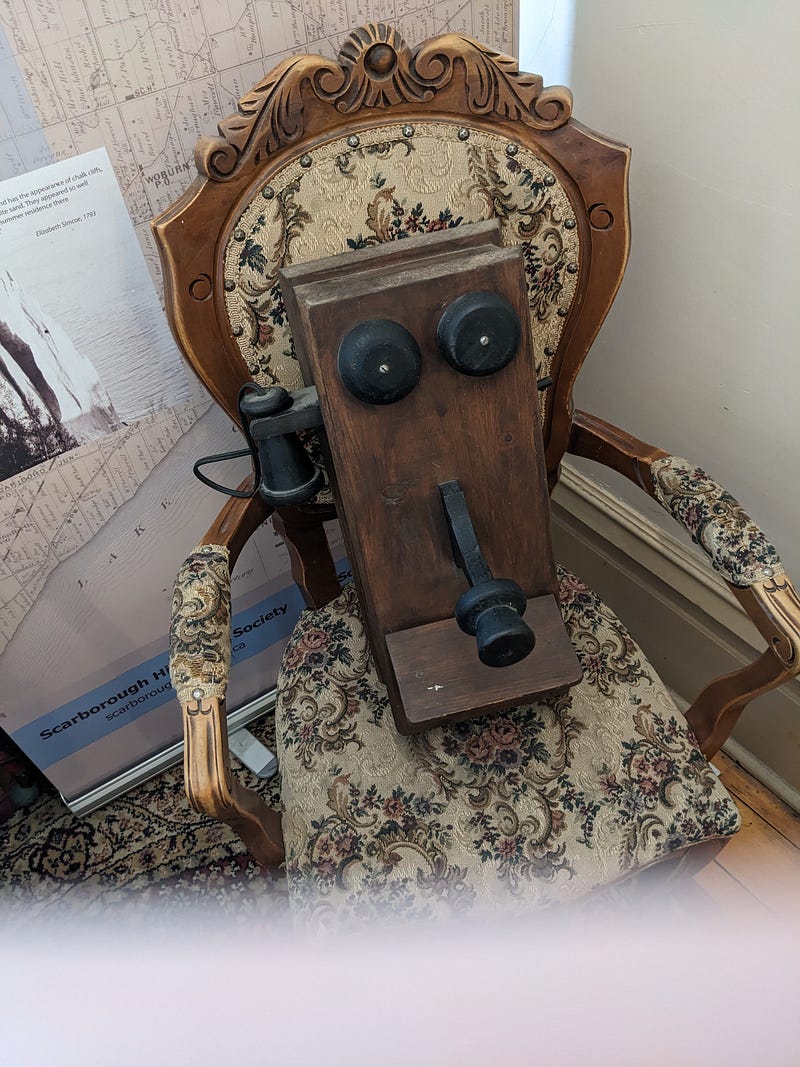
Photo from Sarah Ardin/Unsplash
Article also available at https://medium.com/non-monetized-together/protecting-ourselves-from-totalitarian-movements-on-the-internet-c1fcad23db63.
What This Article Is About
Nonmonetized Together – an environment on Medium and write.as that promotes open dialogue, empowerment, personal development, and access to knowledge. A place where nobody is under pressure to be perfect. A world where you can take a breather from the political chaos on the rest of the Internet, where you can listen to and learn from each other instead of dunking on each other. A space where articles are phrased in a way that makes them useful for participants in a variety of ways, depending on each participant’s worldview.
But what if a Nonmonetized Together visitor’s worldviews involve forcefully taking these experiences away from people? How can participants successfully defend themselves from these movements while staying true to the values of Nonmonetized Together?
This is a topic we absolutely need to discuss because I believe that ordinary people deserve the same privileges as academic sociologists, but this would require the use of methods designed to prevent tyranny and hate. Firstly, anybody who tries to use Nonmonetized Together to silence opposition using force will be banned immediately. I’ll call these movements “first-degree totalitarianism.” But what about someone who is in favour of totalitarian ideas but also willing to act fairly on Nonmonetized Together? In this case, the goal would be to allow this person to participate the community while being careful that they don’t escalate into first-degree totalitarianism. Note that a movement doesn’t need to promote totalitarian beliefs to use first-degree totalitarian methods.
In this article, you and I will come up with ideas to prevent first-degree totalitarianism from taking over Nonmonetized Together. The ideas I will share are untested, so I’m going to run them by you and see what you think. Then, if I get a chance, I will try them out to see if they work. These ideas will be presented in a special format I created where I present the background info first, then the idea, then the supporting evidence. This will be done to prevent people from misinterpreting the background info as supporting evidence and vice versa.
Get Involved

Viktor Forgacs/Unsplash
But before I begin describing them, you should know that I would also love to hear your ideas on how to overcome totalitarianism. You might want to read up on Nonmonetized Together so you can get a sense of whether it is the best place to implement your plans. Or if you want, you can just wing it and not read up on us. Either way, I will send you a response telling you whether Nonmonetized Together can implement your plans and why/why not.
Here are some articles that can help guide your understanding of the community (choose whatever article you feel like reading):
(About Our Blog) Tired of Internet Drama and Fakeness? This Community Can Help With That.
8 Things I Can Only Do Here On Nonmonetized Together.
Why I Added #Svalien to the Nonmonetized Together Title.
How This Online Community Fights Against the Stigma of Mental Illness.
Worried About Political Interests On Nonmonetized Together?
This Common Internet Practice Embodies Most of the Worst (Legal) Aspects of Internet Culture.
This Blog’s Comment Sections Will Make You Feel Significant.
Check Out This Brand-New Social Media Metric.
Keep in mind that Nonmonetized Together is a community based off of norms, not rules, so nothing in the above articles are set in stone. This means that if you see a Nonmonetized Together guideline that presents a problem for implementing your anti-totalitarian ideas, you can try writing a comment that makes a case for the guideline to be changed. If you can show that your ideas can be successful in relation to Nonmonetized Together’s context, I can update the norms to include your ideas. But just because a discursive strategy is successful in the greater society or the political sphere, doesn’t mean it will be successful on Nonmonetized Together. The strategies that are useful here are different.
Background info for idea #1:
See introduction.
Idea #1:
Anybody who uses Nonmonetized Together to forcefully silence opposition and/or spread information designed to create unrest will be banned immediately once we find out.
Supporting evidence for idea #1:
We need users to feel that first-degree totalitarian methods are counterproductive on Nonmonetized Together. By having zero tolerance for these methods, Nonmonetized Together can achieve its goal of being an environment that makes up for the unequal power relations in the greater society. Totalitarianism, on the other hand, causes inequality. By protecting itself from totalitarian movements, Nonmonetized Together allows users to share and receive information that could give members strength and agency.
Background info for idea #2:
Nonmonetized Together has its own unique set of norms, different than that of the rest of social media, and painstakingly designed to promote responsible free speech without falling into the same traps that ruined other free-speech websites. By operating on norms instead of rules, any Nonmonetized Together user gets to interact in a way that directly transforms the existing norms that have gotten society in this deep mess of stressful unproductive discussion. This makes it possible for a non-totalitarian to share knowledge that can challenge a supporter (not actor) of totalitarianism without either person feeling threatened enough to retaliate.
In my attempt to create new norms that can allow Internet users to create a better future, I have studied social media discussions for hundreds of hours, wondering how they could have been handled better. My autism allows me to pinpoint problematic social behaviour that most people take for granted. On top of that, the autism supports I received growing up allowed me to realize the importance of providing personalized support to people who want to do things right but who fail to do so. I am motivated by the possibility that there may not be another chance for people to band together and make a better Internet. Without Nonmonetized Together, our future could be in the hands of whoever can make people the most anxious about the future.
Idea #2:
Because of this context, nobody who states support of totalitarian ideas will be removed from the community without them doing first-degree totalitarianism.
Supporting evidence for idea #2:
This allows anti-totalitarians to take advantage of the fact that unlike the rest of the Internet, this is a safe social landscape devoted to listening and learning, and anti-totalitarians can use that to engage in dialogue that could point totalitarians to safer paths. By understanding the suffering that totalitarian beliefs inflict on totalitarians, anti-totalitarians can encourage peace and tolerance in a way that totalitarians will understand. Participants may receive direct knowledge from a totalitarian about what caused them to take such extreme approaches, and since this is an environment based off listening and learning, we can use this information to solve the issues that led people to choose totalitarianism. These opportunities just aren’t available elsewhere on the mainstream Internet due to censorship, as well as the fact that most people on the Internet would rather act hysterical than try to get along with each other. However, Nonmonetized Together uses free speech to resist radicalization instead of welcoming radicalization, so I hope that we won’t get censored by Medium or write.as.
I’m aware that free speech has contributed to online radicalization in the past, but I also realize that if I block and ignore viewpoints that need improvement, then I’ll just be shifting the responsibility of handling these problems to future generations. And if we continue to ignore the problem, then these generations will be more powerless than present generations, and will have a harder time fighting against these movements! By blocking and ignoring totalitarian ideas, society is leaving it up to totalitarians to solve the problem on their own. Guys, society’s putting fascists in charge of ending fascism! And people wonder why many of us feel unsafe.
Background info for idea #3:
A movement can use first-degree totalitarian methods to promote non-totalitarian messages. Nonmonetized Together is committed to wiping out all first-degree totalitarianism completely.
Idea #3:
I want to hold all first-degree totalitarian movements to the same standards regardless of the movement’s message.
Supporting info for idea #3:
If Nonmonetized Together readers think that I am being partial to one group of people, this could lead to unnecessary conflict. To avoid this, I will hold everyone to the same standards.
Background info for idea #4:
Here on Nonmonetized Together, nobody benefits from forces of power. Community members instead benefit from respect, listening, and fairness.
How do I manage this? By only approving articles that set a tone of cooperativity and solutions, making the comment section mostly free speech, and then guiding the conversations into more productive directions when things go awry. By doing this, I can implicitly set norms and standards for readers’ responses, and these norms and standards can be more civil than that of the rest of the Internet. This means that while a reader can have the freedom to reply what they want, I can set a precedent as to how they comment and for what purpose, without being forceful about it.
The most important goal on Nonmonetized Together is to accurately understand what people are trying to say. We just need to say exactly what we mean and make sure readers know that. We can do this by explaining our points clearly, logically, and literally enough to erase any concerns of double meaning. We can start comments with “let me know if I understand correctly…” and then clarify. To avoid conflict, we can start off our responses by finding common ground with the other person before getting into disagreements.
Idea #4:
When I see someone who says something in favour of totalitarianism without using first-degree totalitarianism, I will tell the commenter even though they may feel the need to use first-degree totalitarianism in the outside world, that need will never be as strong as on Nonmonetized Together. I will use the information in this idea’s background to explain how this is done, and then I will invite the totalitarian to discuss the issues that pushed them in that direction, so we can actually work towards solving these problems.
Supporting evidence for idea #4:
If somebody goes down the wrong trail and gets lost, you don’t let that person fend for themselves, you need to contact them. Same thing here. You can’t expect to solve societal problems by leaving the problem up to the person who is causing them. We need to put politics aside, form alliances with these people, and give each one a chance to explain their situation, so none of them have to use violence or threats to find a solution.
Background info for idea #5:
Nonmonetized Together has its own unique set of norms, different than that of the rest of social media, and painstakingly designed to promote responsible free speech without falling into the same traps that ruined other free-speech websites. By operating on norms instead of rules, any Nonmonetized Together user gets to interact in a way that directly transforms the existing norms that have gotten society in this deep mess of stressful unproductive discussion. This makes it possible for a non-totalitarian to share knowledge that can challenge a supporter (not actor) of totalitarianism without either party feeling threatened enough to retaliate.
One way you can show a user that you’re not out to get them is to be grateful whenever one of them notices a hole in your logic. Eagerly view it as a tool for growth. This may allow them to see you’re being cooperative, not competitive. Even if they’re wrong about there being a hole in your logic, you don’t need to get defensive. You can correct them, but you can tell them you appreciate their effort.
Idea #5:
When using Nonmonetized Together to communicate with others, you might want to try showing them that you’re not out to get them.
Supporting evidence for idea #5:
It’s very important that Nonmonetized Together is a non-confrontational environment. This can be achieved by acting non-confrontational. By reducing conflict, totalitarianism can be made unnecessary on Nonmonetized Together. If a reader makes a response that misinterprets your post as an attack, it’s best to de-escalate the situation right away. Listen, the reader probably isn’t doing this just to be mean. The reader likely made that response because they view you as a threat.
Background info for idea #6:
Where and how do we find cases of first-degree totalitarianism? We need a method that will not create fear and distrust among the community.
Idea #6:
My suggestion is to do some non-confrontational inspections wherever we see something that may suggest a first-degree totalitarian movement. This would involve asking users questions that will determine whether they are innocent or guilty.
Supporting info for idea #6:
If we word these inspections carefully, we can make it so people know we’re not trying to be aggressive. Maybe a participant can begin their comments by saying they respect the non-totalitarian parts of their post but then mention that they are “concerned” about the part that appears totalitarian, saying “I just noticed what might be a problem” with the post. Non-totalitarian participants can tell them that we want their movement to do as much as good as it can, but that there are a few things it needs to do first before the people behind the movement can start benefitting.
Background info for idea #7:
Sometimes we may run into a participant who is not interested in contributing to productive discussion or helping other participants grow. I don’t want to censor them, but I also don’t want them to turn Nonmonetized Together into a cesspool. What can we do to discourage them from contributing to the community?
Idea #7:
Maybe we can tell the troublemaker something that would scare them off from the community. By “scaring them off,” I don’t mean “say something that would make them angry”, I mean “say something that’s so honest that they would socially alienate you in response.” Ideally, it should be something about the community that they may find off-putting.
Supporting evidence for idea #7:
These people can only bring trouble to Nonmonetized Together, so don’t worry if many of them want nothing to do with us. By making responses that cause feelings of discomfort, we get to reinforce Nonmonetized Together’s nonsugarcoated identity in the process.
Conclusion
Nonmonetized Together is not for everybody. Participants need to be brave enough to investigate the cracks in society that have led some people to disturbing life pathways. But people have engineered online social spaces to create division, alienation, and paranoia, so Nonmonetized Together can use social engineering to undo the damage.
Discuss...
#Peace #Power #Communication #HateMovements #Internet



 Personal image
Personal image







